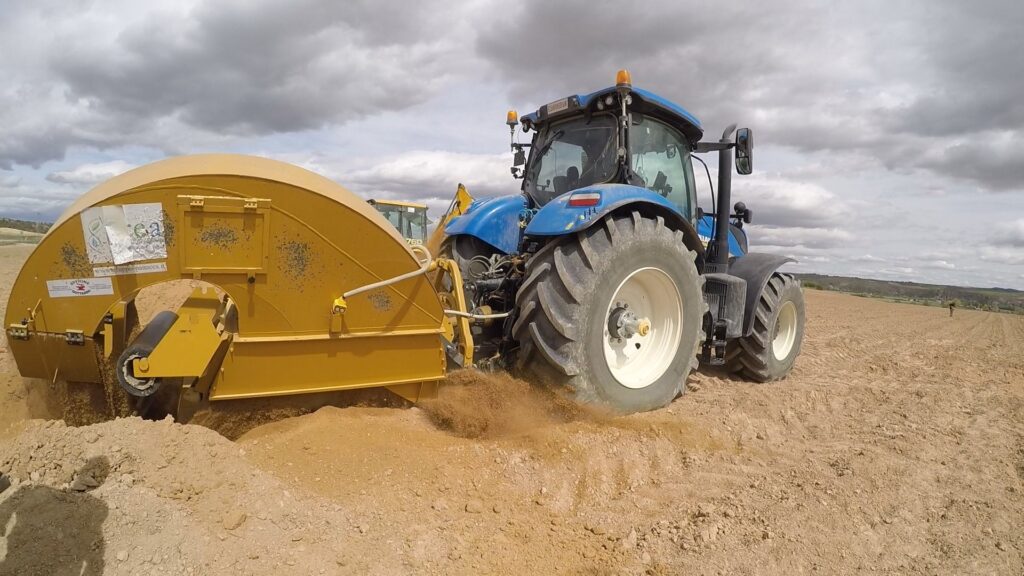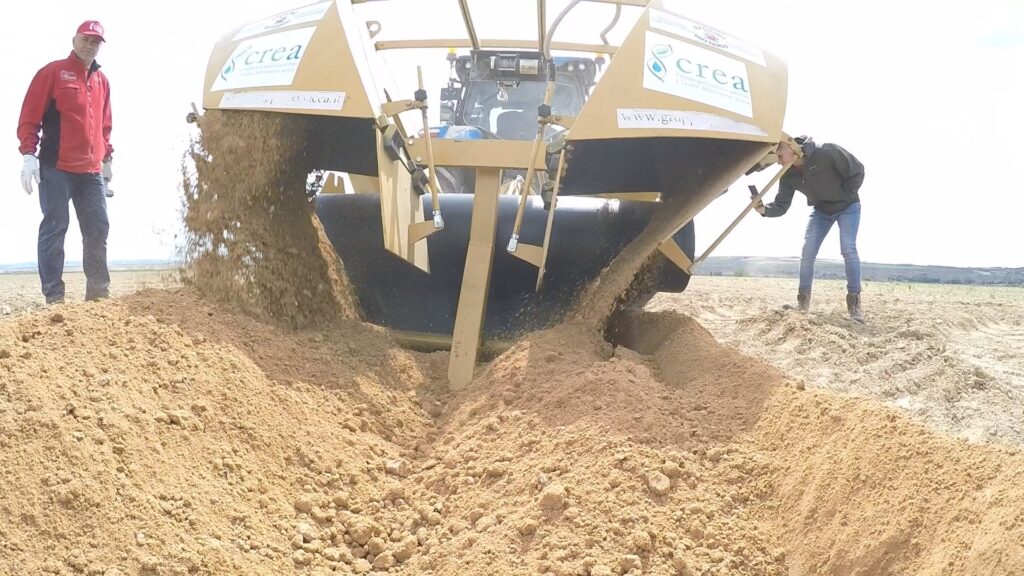One of the objectives of MIDAS is to optimize selected non-edible crops to be adapted for growing in marginal agricultural lands. This can be achieved through a combination of innovative breeding techniques using modern biotechnology tools, and by developing improved agronomic practices, to increase the crop’s resource efficiency for example in the use of water.
Water scarcity is indeed one of the main causes of soil marginality in the Mediterranean basin and in MIDAS a specific task is dedicated to developing and demonstrating a Subsurface Water Retention Systems (SWRS) to support the water needs of innovative cropping systems that include both annual and perennial industrial crops.
A Subsurface Water Retention System (SWRS)is a technology that improves the water storage capacity of sandy soils, consisting of subsurface plastic membranes installed within the soil profile that can collect rainwater and prevent its loss via deep percolation, to allow the availability of water for long term in arid condition.

In MIDAS we are testing a Sub Water Retention System (SWRS) prototype that was developed by Italian CREA as a tool to overcome the desertification of land in South Europe, that is appropriate for sandy arid areas of the Mediterranean. It can collect rainwater by laying an impermeable removable membrane, in strips under the plants roots at 1m below ground level. It can collect up to 290 m3/ha of rainwater after each rain event and it will be tested in the South of Italy, in Greece (CRES) and in Spain, in field trials with industrial hemp, sorghum and castor bean.
Although SWRS is a well-known technology, so far it has never been fully mechanized. In MIDAS we are using a machine developed by CREA- IT that cuts a U-shaped trench into the soil up t, then deploys the impermeable sheet and finally covers it again with the soil very fast.


This can represent a novel and long-term improvement of marginal soils, to increase the soil water holding capacity in the root zone, and is expected to impact the crop productivity in the long-term.
One may argue that the dismantling of this SWRS and the removal of the sheets at the end of their life cycle can be difficult and problematic, causing the dispersion of plastic debris into the soil. However, a series of tests carried out on a full row of 150 linear meter demonstrated that the film can be effectively removed without leaving any debris, thanks to the excellent resistance to traction of the materials used.

The demonstrations and the tests carried out by CREA IT in the farm-scale field trials of MIDAS will help to further optimize the machine and its use. This June MIDAS was present with a project info point at the European Biomass Conference and Exhibition in Bologna and we asked Luigi Pari CREA IT to show the SWRS and explain their current activities in MIDAS, learn more in the video below.

